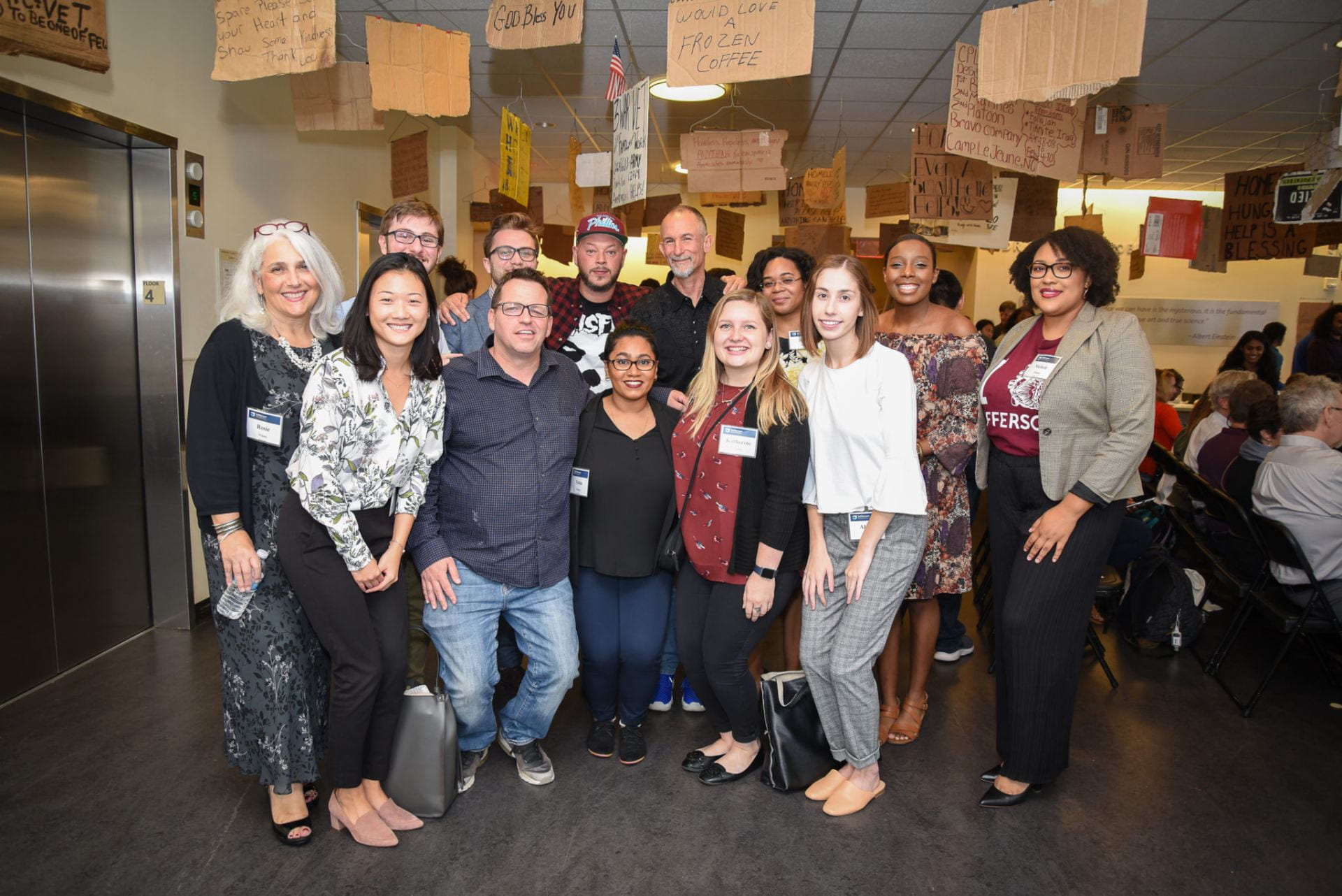Willie Baronet, the Stan Richards Professor in Creative Advertising, has been buying and collecting homeless signs since 1993. The meaningful conversations Baronet had with the homeless when purchasing signs led to the founding of his not-for-profit We Are All Homeless. Through this organization, Baronet enlists volunteers and students to advocate for the homeless by organizing awareness-building events, including exhibits of collected signs and gathering donations.
In collaboration with a We Are All Homeless 2018 event, Baronet worked alongside researchers from Thomas Jefferson University’s Public Health Department and its director, Dr. Rosemary Frasso, to study the lived experiences of unhoused people who panhandle and their interactions with passersby. “I am so proud that I’ve been able to partner with Dr. Frasso to bring art and science together to create meaningful research to impact the homeless cause,” says Baronet. “Working with her students, and subsequently being a co-author to their research, is something I didn’t expect to be doing. The TAI slogan is Better Advertising. Better World. and the Meadows motto is Start a Movement. I hope that this work can be an example to our students who want to take the lessons we teach about creativity and purpose and find ways to make them a reality.”
Their resulting paper, ‘Even a smile helps’: Exploring the Interactions Between People Experiencing Homelessness and Passersby in Public Spaces, was published in the International Journal of Social Psychiatry this January. Forty semi-structured interviews were conducted with participants who were approached while panhandling and asked to describe their experiences asking for help in public and accessing homelessness services, as well as what they wished to share with those passing by. Participants’ experiences were consistent with loneliness, as characterized in the literature as distress at lack of social connection, and were also notable for the verbal and physical violence endured in public spaces. Many shared personal histories of tragedy and called for greater empathy and compassion from passersby, as well as society as a whole, for people experiencing homelessness. The researchers said that because social isolation and trauma are detrimental to mental health in this vulnerable group, interventions to support this population should provide opportunities for consistent, supportive social connections and focus on providing low-barrier, stable housing.
 Dr. Frasso, the organizing researcher, adds, “This collaboration helped us both grow as scholars and educators. Working with colleagues outside your home discipline is powerful and together we were able to shed light on the lives of people experiencing homelessness, through art (the amazing exhibit we held at Jefferson) and through traditional public health channels, such as peer-reviewed literature.”
Dr. Frasso, the organizing researcher, adds, “This collaboration helped us both grow as scholars and educators. Working with colleagues outside your home discipline is powerful and together we were able to shed light on the lives of people experiencing homelessness, through art (the amazing exhibit we held at Jefferson) and through traditional public health channels, such as peer-reviewed literature.”
